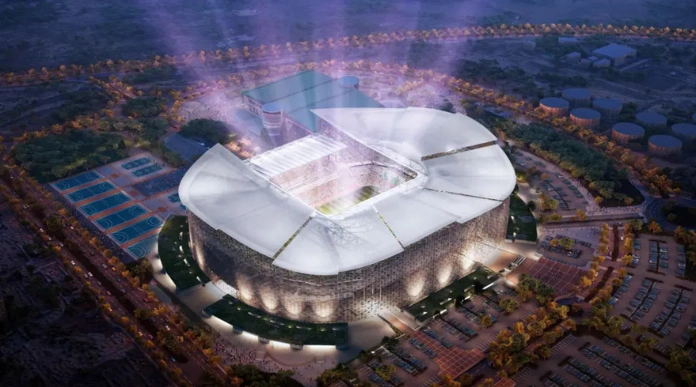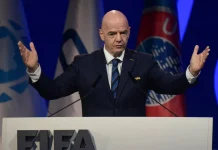Every country throws its hat in the ring for hosting the FIFA World Cup. Winning a bid and hosting such an extravagant affair entails more than just cash backing, even though that certainly cannot be dismissed entirely. Hosting such a tournament would entail open transparency, sound governance, and integrity of transactions when preparing for and after staging the show thus resulting in a spectacle that truly inspires trust, representativeness, and the creation of value among all the grass-roots individuals in the communities where the tournaments take place and international enthusiasts of the spectacle. Much controversy has surrounded Saudi Arabia’s bid for the 2034 FIFA World Cup, mainly owing to the pervasive governance corruption prevailing in the nation.
Historical Governance Issues of Saudi Arabia
Political governance in Saudi Arabia was a complete no-go when it came to transparency and instead undertook an autocratic approach to governance. These issues, including governance, human rights violations, and lack of accountability, have been major problems over the years. International organizations, human rights groups, and even Saudi citizens have condemned the Kingdom for suppressing freedoms and silencing dissent.
In the case of a global sporting event like the World Cup, where billions of dollars flow through different channels from contracts, sponsorships, construction projects, and ticket sales up to marketing rights, the room for corruption widens much more. The Saudi government is criticized for the lack of transparency. Approximately 40% of the budget goes to the category “Other sectors,” such as defense and the royal family, which it makes hard for its citizens to fathom where it is allocating its budgetary priorities.
Corruption of Saudi Arabia in Governance
Corruption has dominated most of the investigations and allegations, most of which involve Saudi Arabia, especially the government institutions. From business deals involving gigantic corporate firms to government contracting, there have been a variety of cases where influence peddling, nepotism, and lack of accountability have become a question.
In 2023, Saudi Arabia scored 52 out of 100 on the Corruption Perceptions Index published by Transparency International. This reflects a moderate level of perceived corruption in the public sector.
This includes the biggest anti-corruption campaign, which in 2017 was started by Saudi Crown Prince Mohammed bin Salman through mass detentions and questioning of many influential figures, among them businessmen, government officials, and members of the royal family. Critics describe it as being opaque and being truly politically motivated rather than with a sincere intent to fight systemic corruption.
Demands of FIFA from the Host Countries
FIFA has every standard for countries seeking to host the World Cup. Among them are democratic governance, respect for human rights, transparency in financial dealings, and a guarantee of an open and friendly atmosphere for players, fans, and the international community. The principles of FIFA were created as a safeguard against hurting the integrity of the tournament, and no country can take advantage of the position for personal or political gain.
Saudi Arabia’s record on these counts is seriously in question. The governance issues of the Kingdom, ranging from suppression of political dissent to lack of freedom of the press, directly contrast with the very requirements of hosting an event that promotes inclusiveness, diversity, and free expression of ideas, as demanded by FIFA. What is more, the challenge of ensuring financial transparency in the presence of centralized control of the economic activities of Saudi Arabia further adds to concerns regarding governance.
Governance Concerns and International Perception
The World Cup is not the event of a country, but it is a world event. Tens of millions of spectators and media houses all over the globe gather to watch this event. In such a scenario, the hosting country is forced to maintain international standards in governance, security, and ethics.
The governance concerns, especially corruption concerns, of Saudi Arabia may have a negative impact on the trust between FIFA member countries, sponsors, and global spectators. If perceptions arise that corrupt practices have manipulated decision-making processes, contract deals, or tournament revenue distribution, it may throw a shadow on the whole event.
Corruption is still a major issue in Saudi Arabia, cutting across all sectors and levels of governance. The country ranked 53rd globally, improving from 57th in 20174. The CPI has been fluctuating, with a low of 33 in 2006 and a high of 53 in 2019
Socio-political implications of hosting the World Cup through corruption
Hosting the FIFA World Cup comes with many economic, social, and political implications. It can provide a country with the opportunity to develop its infrastructure, create employment, and bring international attention to the country. However, it can also reveal the weaknesses of a nation, especially in governance and ethical standards.
This can only further feed the fire that continues to perpetuate exacerbating socio-political tensions in Saudi Arabia. This global event, without adequate protective measures, is a guarantee for the focus to be significantly intensified on human rights issues, exploitation of laborers, and malpractices regarding financial dealings.
The World Cup event is seen as a springboard for activists, NGOs, and international bodies to attack governance practices and demand greater accountability in case these practices contravene global norms of fair governance.
Conclusion
Hosting the World Cup is a great privilege accompanied by responsibility, demanding the host nation exercise the finest levels of transparency, inclusiveness, and ethical governance. Though the governance issues in Saudi Arabia are the most correlated with the corruption issues, it hinders much performance towards the required standards. The authoritarian political structure of the Kingdom and the history of governance-related issues raise questions over its ability to host such a prestigious event, ensuring the credibility and fairness needed. Until Saudi Arabia addresses its systemic governance concerns and demonstrates genuine commitment to transparency and accountability, it may struggle to meet FIFA’s criteria for hosting the World Cup.













